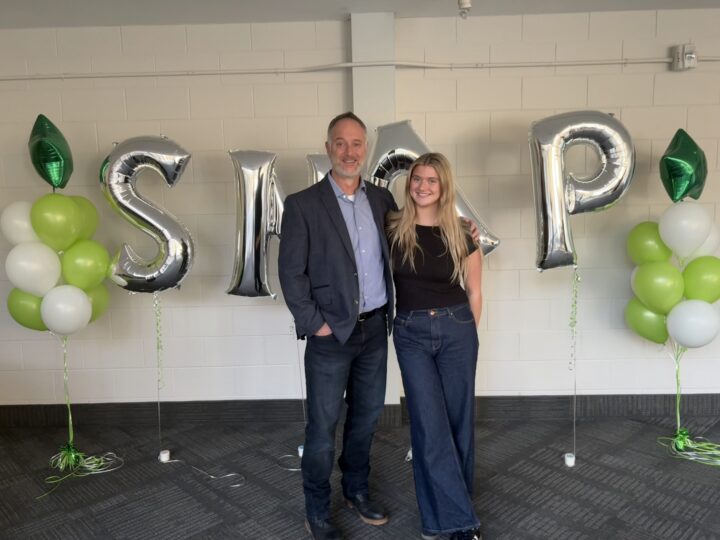Last month, Dr. Jason Candy, Physical Education Coordinator in the School of Justice and Fitness Studies, was invited to speak at the anniversary celebration of SNAP – Supporting Neurodiversity through Adaptive Programming- at Brock University, which he helped establish 30 years ago.
Dr. Candy, who has taught at Niagara College for 25 years, helped create SNAP as part of his independent study program when he was a Graduate student. Since then, the program has grown and expanded to meet the ever-changing needs of the participants as well as the many volunteers who participate in the program each semester.
When addressing the crowd, Dr. Candy spoke about the impact the SNAP program has had on him, and others in the community.
“What began as a humble outreach project has grown exponentially over the last three decades,” he said. “From the initial event with just 30 volunteers and 30 participants to serving 50,000 participants and counting, along with countless volunteers, we are here to celebrate something truly worth recognition.”
“SNAP has profoundly shaped my life, both professionally and personally and I will always feel a connection to SNAP, because of what it has done for me and, even more so, for so many others.”
Dr. Candy credits his experience with SNAP with helping him to develop his compassionate and inclusive teaching approach.
“SNAP has nurtured a continued drive to better myself in ways that always allow me to connect with my students and essentially meet them where they are”, he shared. “I’ve developed a deeper sense of empathy for others (particularly for those marginalized by situations beyond their control) and I believe that seeing experiences through the eyes of a student better prepares me to meet their particular needs.”
Dr. Candy encourages his students – and all NC students- to apply for a volunteer opportunity with SNAP and highlights the impact and advantages for volunteers.
“The ripple effect of volunteering is profound and as my experiences continue to inform my teaching today, I assume that countless other volunteers have become more adept, compassionate and empathetic practitioners due to their participation,” he said.


